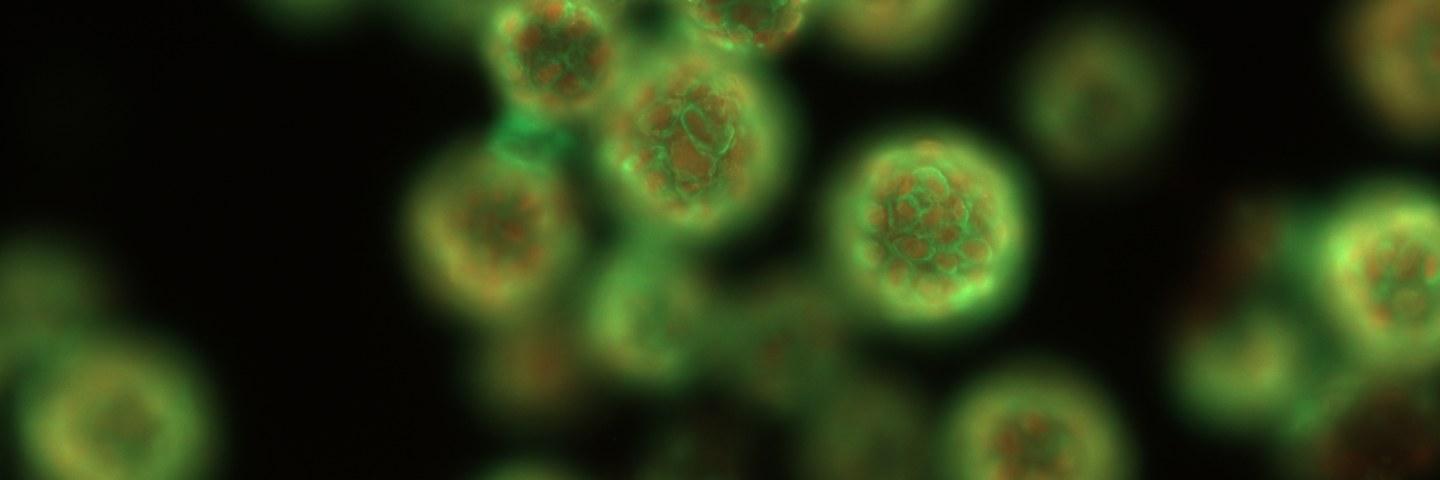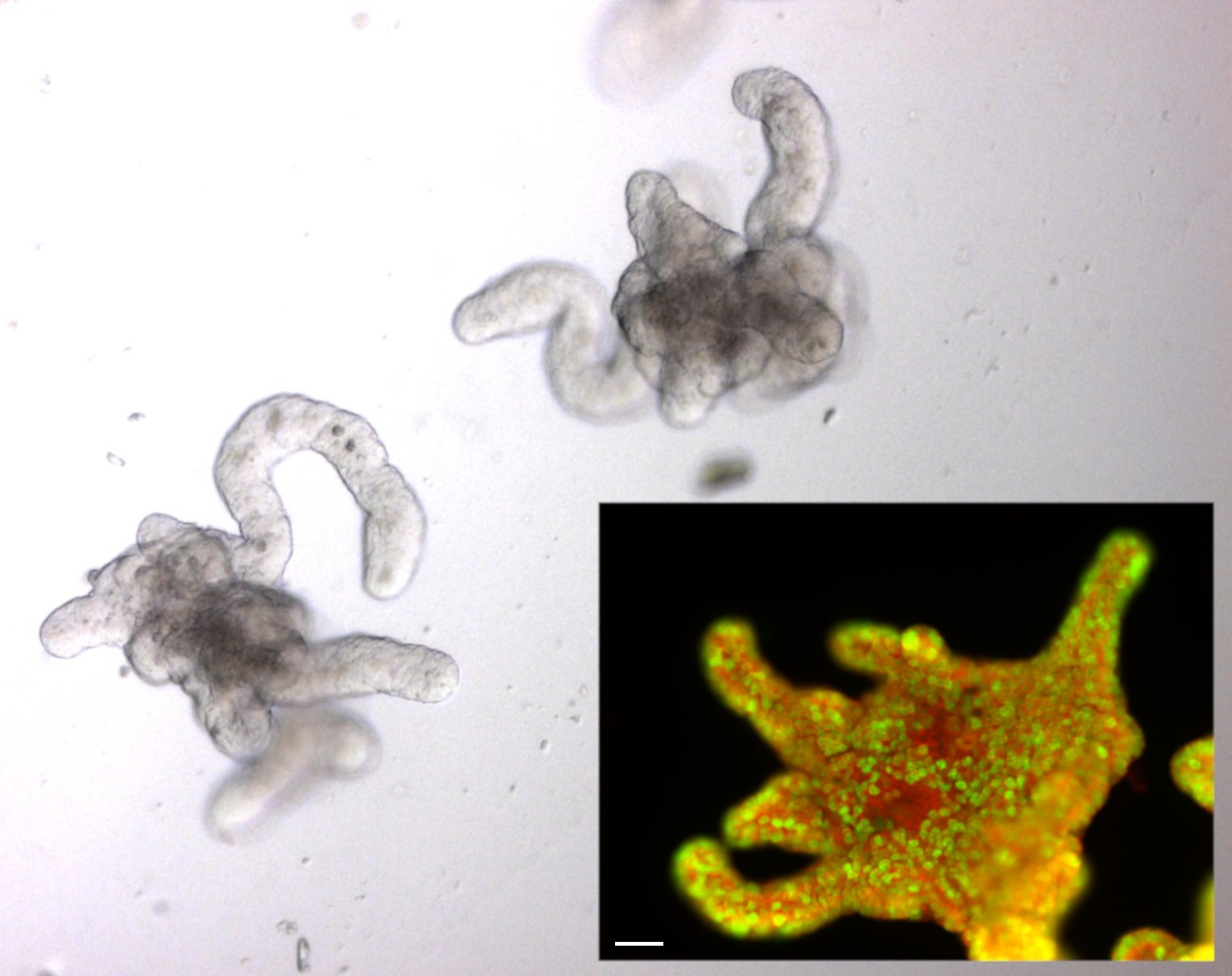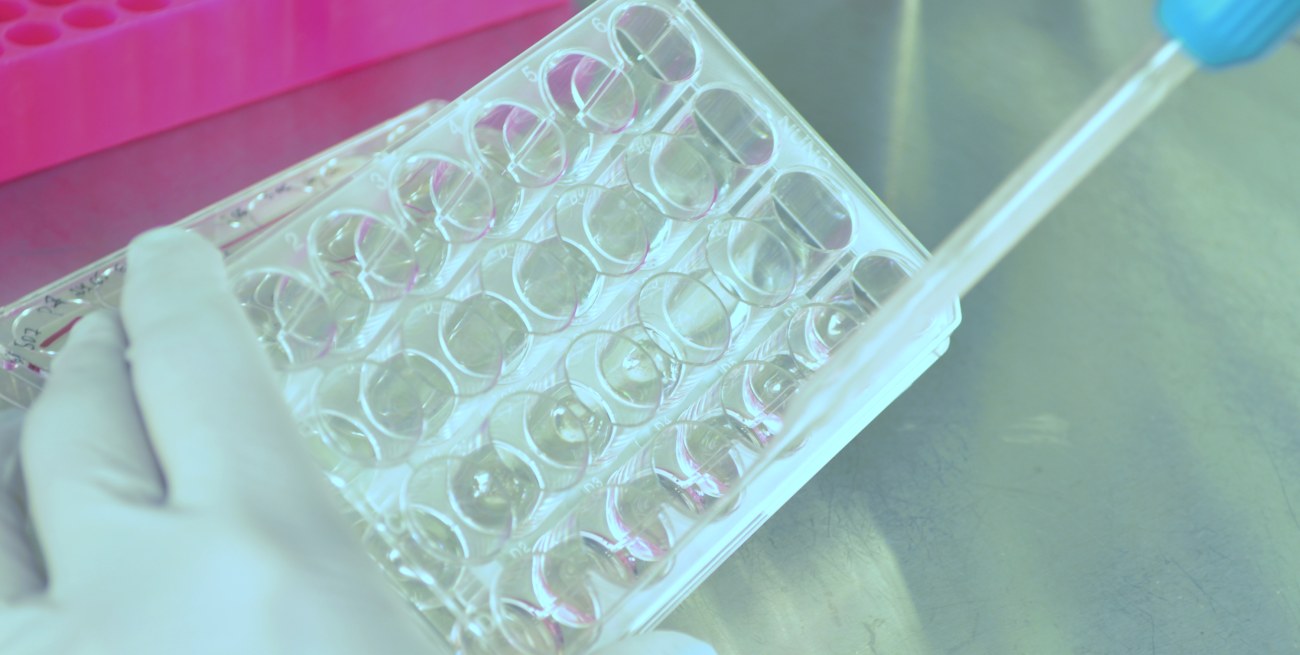
Adult Stem Cell Organoids Facility

In vitro three-dimensional cultures, i.e. organoids, are one of the major technological breakthroughs of this decade and considered method of the year in 2017 by the Nature group. With harmonic and organized balance between self-renewing and differentiation, organoids have become a great tool for better understanding of tissue development, organogenesis, as well as stem cell behavior by mimicking with high precision their in vivo counterparts, a limitation faced by 2D cultures.
Organoids can be generated from embryonic stem cells, induced pluripotent stem cells (iPSCs) or tissue-resident adult stem cells (AdSCs) by using 3D extracellular matrix and media supplemented with growth factor cocktails. Although they share common characteristics, i.e. clonogenicity, organotypic self-renewing, proliferation and differentiation, as well as other physiological tissue patterns, there are also significant differences among them. By using reprogramming factors, known as Yamanaka factors, iPSCs can potentially generate organoids from any type of tissue, which enables studies of diseases in several development stages. However, in addition to having a complex protocol, iPSCs-derived organoids can be less functional or immature, requiring additional and longer culture for maturation. On the contrary, organoids generated from AdSCs have a robust and simpler protocol for cultures of long-term biopsied tissue. These organoids also reproduce the tissue phenotypes more consistently and considerably better when it comes to genetic stability. Additionally, they allow the culture of malignant organoids (tumoroids), thereby enabling precise toxicological studies and understanding of patient-specific conditions. The advantage of the self-renewal capacity of several tissues and organs, coupled to a considerable amount of protocols for culturing organoids from adult stem cells, have made organoids well accepted as an efficient tool to fulfil the gap between the traditional monolayer in vitro and the in vivo studies. The adult stem cell organoids facility from Tampere University is located at the Arvo building. We offer different services related to AdSC-derived epithelial organoid cultures in humans and mice to both academic and non-academic clients.

Acknowledgement
All users of the Adult Stem Cell Organoids facility services are required to acknowledge the facility in publications:
"The authors acknowledge the Adult Stem Cell Organoids Facility from Tampere University for their service."

